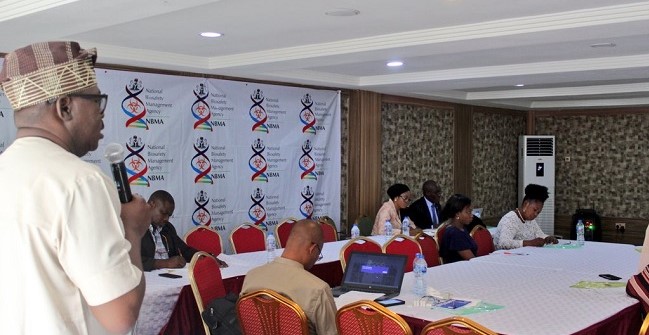The National Biosafety Management Agency (NBMA) says it has commenced trainings to properly equip biosafety regulators on how best to regulate the emerging technologies called Genome Editing.

Genome editing or genome engineering or gene editing is a type of genetic engineering in which DNA is inserted, deleted, modified or replaced in the genome of a living organism.
Unlike early genetic engineering techniques that randomly insert genetic material into a host genome, genome editing targets the insertions to site-specific locations.
The Director General, NBMA, Dr Rufus Ebegba, made this known in a statement made available to EnviroNews on Wednesday, October 30, 2019.
Ebegba said that the training was in conjunction with the Programme for Biosafety Systems (PBS) aimed at ensuring capacity strengthening of staff of the agency while embracing the new responsibility.
It will be recalled that that the Federal Government recently expanded the mandate of the NBMA to include new and emerging technologies of which genome editing is one.
Ebegba said that developments in science and technology were happening at a rapid rate, hence the need for staff of the agency to be proactive and be on top of their operations.
“The two-day workshop is aimed at providing a platform for experts in the biosafety sector from across the globe to educate officers of the NBMA and other key stakeholders on issues and aspects of genome editing.
“Specifically, to enlighten the participants on the science of genome editing, to identify the possible risks, if any, that may be associated with genome editing to discuss the possible regulatory guidance for genome editing in Nigeria.
“Also, to review the use of genome editing in other countries and the adopted regulatory processes; and to identify communication needs and issues in connection with regulatory guidance and decision making about genome editing techniques.
“As the biosafety regulators of Nigeria, NBMA owes the country proper regulation of these technologies.
“NBMA will regulate genome editing as such the workshop will help guide the agency on areas to regulate.”
He urged participants to utilise the opportunity to acquire the needed knowledge that would aid the agency in proper regulation of the technology.
Mr John Komen, the Africa Coordinator, PBS, commended the NBMA on the strides it had made in the last five years especially in the expansion of the NBMA Act to include the regulation of emerging biotechnologies.
Komen expressed happiness at the successful commercialisation of the first engineered food crop (PBR-Cowpea) in the sub-Saharan Africa by Nigeria.
He said this achievement was an indication of a strong biosafety system in Nigeria.
Prof. Celestine Aguoru, the President, Nigeria Biotechnology and Biosafety Consortium (NBBC), praised the NBMA for the giant strides it had achieved within the few years of its existence.
Aguoru said the achievements had made the agency a household name in Nigeria toward ensuring safe deployment of products of modern biotechnology.
He encouraged NBMA not to be deterred by the different challenges it was faced with saying, “resistance is always faced at introduction of a new technology”.
Aguoru assured participants that as the president of the NBBC, he would ensure that all stakeholders were brought together to ensure that the biosafety system maintained steady growth.
